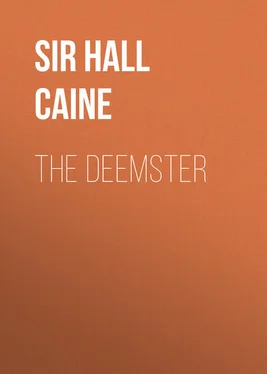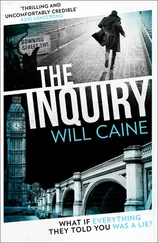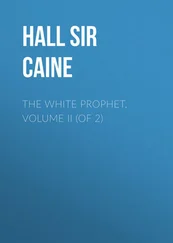Hall Caine - The Deemster
Здесь есть возможность читать онлайн «Hall Caine - The Deemster» — ознакомительный отрывок электронной книги совершенно бесплатно, а после прочтения отрывка купить полную версию. В некоторых случаях можно слушать аудио, скачать через торрент в формате fb2 и присутствует краткое содержание. ISBN: , Жанр: foreign_antique, foreign_prose, на английском языке. Описание произведения, (предисловие) а так же отзывы посетителей доступны на портале библиотеки ЛибКат.
- Название:The Deemster
- Автор:
- Жанр:
- Год:неизвестен
- ISBN:http://www.gutenberg.org/ebooks/35781
- Рейтинг книги:5 / 5. Голосов: 1
-
Избранное:Добавить в избранное
- Отзывы:
-
Ваша оценка:
- 100
- 1
- 2
- 3
- 4
- 5
The Deemster: краткое содержание, описание и аннотация
Предлагаем к чтению аннотацию, описание, краткое содержание или предисловие (зависит от того, что написал сам автор книги «The Deemster»). Если вы не нашли необходимую информацию о книге — напишите в комментариях, мы постараемся отыскать её.
The Deemster — читать онлайн ознакомительный отрывок
Ниже представлен текст книги, разбитый по страницам. Система сохранения места последней прочитанной страницы, позволяет с удобством читать онлайн бесплатно книгу «The Deemster», без необходимости каждый раз заново искать на чём Вы остановились. Поставьте закладку, и сможете в любой момент перейти на страницу, на которой закончили чтение.
Интервал:
Закладка:
The Archdeacon paused with his drooping finger half raised over the other innocent face at his breast, Thorkell's features twitched, and the tears ran down the white cheeks of his wife.
In an instant the baby-lamb had hobbled away, and before the Archdeacon had restored the child to the arms of blind Kerry or mumbled the last of the prayers, there came the hum of many voices from the distance. The noise came rapidly nearer, and as it approached it broke into a great tumult of men's deep shouts and women's shrill cries.
The iron hasp of the lych-gate to the churchyard was heard to chink, and at the same moment there was the sound of hurrying footsteps on the paved way. The company that had gathered about the font broke up abruptly, and made for the porch with looks of inquiry and amazement. There, at the head of a mixed throng of the riff-raff of the parish, bareheaded men, women with bold faces, and children with naked feet, a man held a young woman by the arm and pulled her toward the church. He was a stalwart fellow, stern of feature, iron gray, and he gripped the girl's bare brown arm like a vise.
"Make way there! Come, mistress, and no struggling," he shouted, and he tugged the girl after him, and then pushed her before him.
She was young; twenty at most. Her comely face was drawn hard with lines of pain; her hazel eyes flashed with wrath; and where her white sun-bonnet had fallen back from her head on to her shoulders, the knots of her dark hair, draggled and tangled in the scuffle, tumbled in masses over her neck and cheeks.
It was Mally Kerruish, and the man who held her and forced her along was the parish sumner, the church constable.
"Make way, I tell you!" shouted the sumner to the throng that crowded upon him, and into the porch, and through the company that had come for the christening. When the Archdeacon stepped down from the side of the font, the sumner with his prisoner drew up on the instant and the noisy crew stood and was silent.
"I have brought her for her oath, your reverence," said the sumner, dropping his voice and his head together.
"Who accuses her?" the Archdeacon asked.
"Her old mother," said the sumner; "here she is."
From the middle of the throng behind him the sumner drew out an elderly woman with a hard and wizened face. Her head was bare, her eyes were quick and restless, her lips firm and long, her chin was broad and heavy. The woman elbowed her way forward; but when she was brought face to face with the Archdeacon, and he asked her if she charged her daughter, she looked around before answering, and seeing her girl Mally standing there with her white face, under the fire of fifty pairs of eyes, all her resolution seemed to leave her.
"It isn't natheral, I know," she said, "a mother speaking up agen her child," and with that her hard mouth softened, her quick eyes reddened and filled, and her hands went up to her face. "But nature goes down with a flood when you're looking to have another belly to fill, and not a shilling at you this fortnight."
The girl stood without a word, and not one streak of color came to her white cheeks as her mother spoke.
"She denied it, and denied it, and said no, and no; but leave it to a mother to know what way her girl's going."
There was a low murmur among the people at the back and some whispering. The girl's keen ear caught it, and she turned her head over her shoulder with a defiant glance.
"Who is the man?" said the Archdeacon, recalling her with a touch of his finger on her arm.
She did not answer at first, and he repeated the question.
"Who is the guilty man?" he said, in a voice more stern.
"It's not true. Let me go," said the girl, in a quick undertone.
"Who is the partner of your sin?"
"It's not true, I say. Let me go, will you?" and the girl struggled feebly in the sumner's grip.
"Bring her to the altar," said the Archdeacon. He faced about and walked toward the chancel, and entered it. The company followed him and drew up outside the communion rail. He took a Testament from the reading-desk and stepped toward the girl. There was a dead hush.
"The Church provides a remedy for slander," he said, in a cold, clear tone. "If you are not guilty, swear that you are innocent, that he who tampers with your good name may beware." With that the Archdeacon held the Testament toward the girl. She made no show of taking it. He thrust it into her hand. At the touch of the book she gave a faint cry and stepped a pace backward, the Testament falling open on to the penitent-form beneath.
Then the murmur of the bystanders rose again. The girl heard it once more, and dropped on her knees and covered her face, and cried, in a tremulous voice that echoed over the church, "Let me go, let me go."
The company that came for the christening had walked up the aisle. Blinking Kerry stood apart, hushing the infant in her arms; it made a fretful whimper. Thorkell stood behind, pawing the paved path with a restless foot. His wife had made her way to the girl's side, her eyes overflowing with compassion.
"Take her to prison at the Peel," said the Archdeacon, "and keep her there until she confesses the name of her paramour." At that, Thorkell's wife dropped to her knees beside the kneeling girl, and putting one arm about her neck, raised the other against the sumner, and cried, "No, no, no; she will confess."
There was a pause and a long hush. Mally let her hands fall from her face, and turned her eyes full on the eyes of the young mother at her side. In dead silence the two rose to their feet together.
"Confess his name; whoever he is, he does not deserve that you should suffer for him as well," said the wife of Thorkell Mylrea, and as she spoke she touched the girl's white forehead with her pale lips.
"Do you ask that?" said Mally, with a strange quietness.
For one swift instant the eyes of these women seemed to see into each other's heart. The face of Thorkell's wife became very pale; she grew faint, and clutched the communion rail as she staggered back.
At the next instant Mally Kerruish was being hurried by the sumner down the aisle; the noisy concourse that had come with them went away with them, and in a moment more the old church was empty, save for the company that had gathered about the font.
There was a great feast at Ballamona that day. The new house was finished, and the young Christian, Ewan Mylrea, of Ballamona, was the first to enter it; for was it not to be his house, and his children's and his children's children's?
Thorkell's wife did not join the revels, but in her new home she went back to her bed. The fatigue and excitement of the day had been too much for her. Thorkell himself sat in his place, and laughed noisily and drank much. Toward sunset the sumner came to say that the girl who had been taken to prison at the Peel had confessed, and was now at large. The Archdeacon got up and went out of the room. Thorkell called lustily on his guests to drink again, and one stupefied old crony clambered to his feet and demanded silence for a toast.
"To the father of the girl's by-blow," he shouted, when the glasses were charged; and then the company laughed till the roof rang, and above all was the shrill laugh of Thorkell Mylrea. Presently the door opened again, and the Archdeacon, with a long, grave face, stood on the threshold and beckoned to Thorkell at the head of his table. Thorkell went out with him, and when they returned together a little later, and the master of Ballamona resumed his seat, he laughed yet more noisily than before, and drank yet more liquor.
On the outside of Ballamona that night an old woman, hooded and caped, knocked at the door. The loud laughter and the ranting songs from within came out to her where she stood in the darkness, under the silent stars. When the door was opened by Hommy-beg the woman asked for Mylrea Ballamona. Hommy-beg repulsed her, and would have shut the door in her face. She called again, and again, and yet again, and at last, by reason of her importunity, Hommy-beg went in and told Thorkell, who got up and followed him out. The Archdeacon heard the message, and left the room at the same moment.
Читать дальшеИнтервал:
Закладка:
Похожие книги на «The Deemster»
Представляем Вашему вниманию похожие книги на «The Deemster» списком для выбора. Мы отобрали схожую по названию и смыслу литературу в надежде предоставить читателям больше вариантов отыскать новые, интересные, ещё непрочитанные произведения.
Обсуждение, отзывы о книге «The Deemster» и просто собственные мнения читателей. Оставьте ваши комментарии, напишите, что Вы думаете о произведении, его смысле или главных героях. Укажите что конкретно понравилось, а что нет, и почему Вы так считаете.












